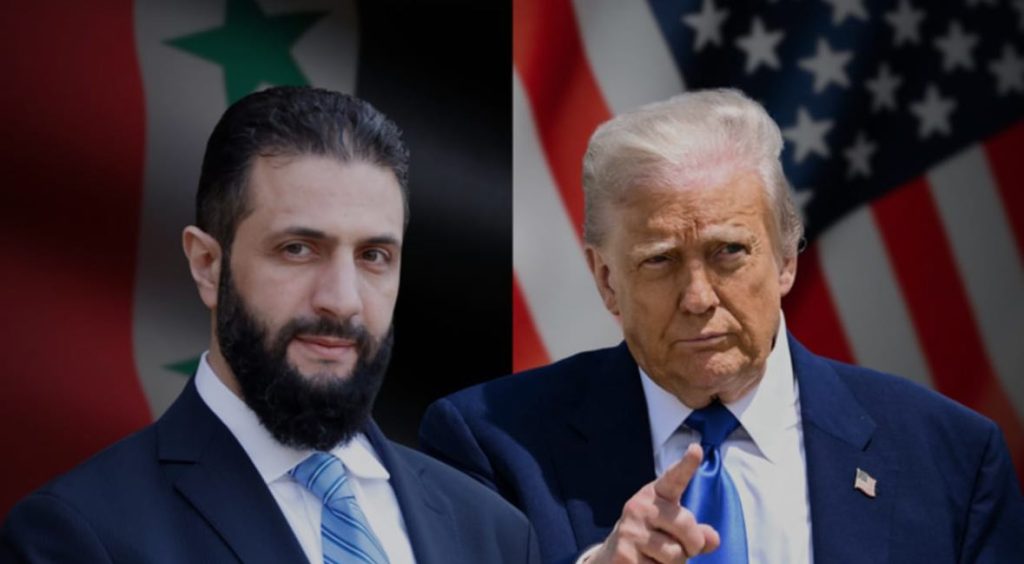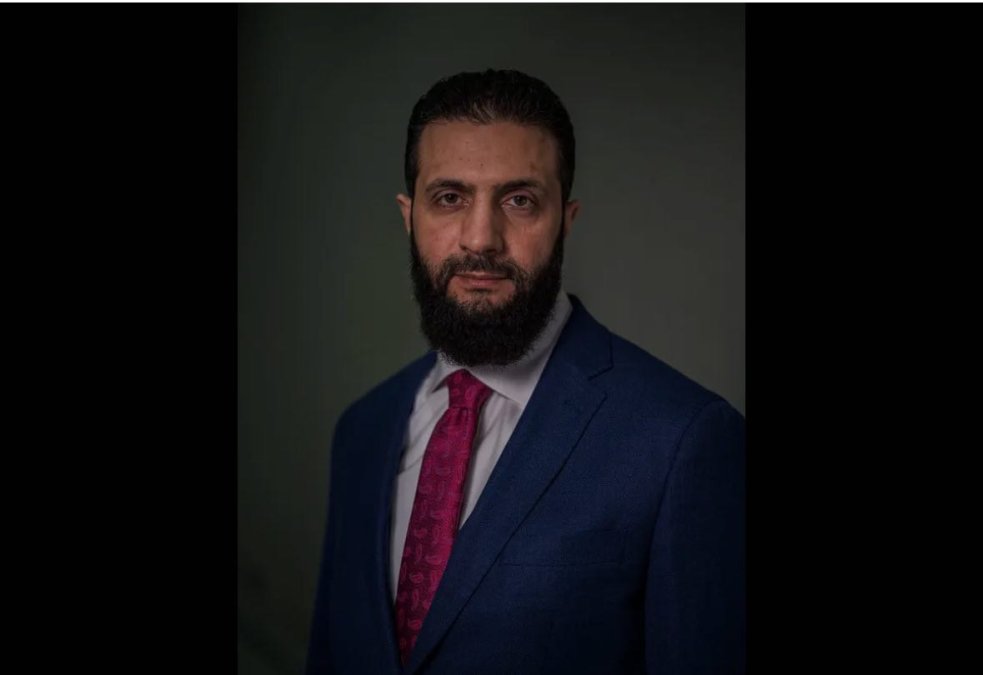The White House’s Red Carpet for Ahmad Shara
The White House’s Red Carpet for Ahmad Shara
According to Iran Gate News Agency, eleven months after the fall of Assad’s fifty-three-year regime and his flight to Moscow, Syria has entered a new phase of political and social reconstruction. Ahmad Shara, the former leader of the jihadist group Hay’at Tahrir al-Sham, now presides as the President of Syria, a country left economically and securely fragile after a civil war and multiple crises. He is striving to advance domestic reconstruction, the return of refugees, and diplomatic engagement with the Western world and neighboring countries with a pragmatic approach.
It has been eleven months since Bashar al-Assad, the former and deposed leader of Syria, flew to Moscow, marking the end of his family’s fifty-three-year oppressive rule in Syria.
Almost six weeks after Syria was liberated from Assad’s rule, the factions that overthrew him introduced Ahmad Shara, the leader of one of these factions, as the country’s new president.
Shara, previously known as Abu Mohammad al-Julani, led a government composed of opposition forces in the Idlib province, a region that was previously outside Assad’s control. His government was based on Islamist interpretations of law and order concepts and was repressive in every sense.
However, since coming to power, the former leader of Hay’at Tahrir al-Sham (HTS), a jihadist group with a history of ties to al-Qaeda, has adopted a more measured and pragmatic approach to governance.
In contrast, almost all Western diplomats who have met with Shara have described him as a pragmatist.
This pragmatic approach led the new Syrian leader to visit the White House on November 10, marking the first visit of a Syrian president to the United States.
Although it is still unclear how Shara plans to govern a poor, bankrupt, and politically divided country, it is evident that Donald Trump, the President of the United States, believes that Shara’s presence at the White House could pave the way for unlocking much-needed reconstruction aid and set Syria on a positive path.

The Formation of a New Syria
Since coming to power, Shara has repeatedly emphasized that the new country belongs to all Syrians. He has released a provisional constitution that guarantees equality, freedom of expression, and due process along with other fundamental principles of democracies.
The new government also held elections for a 210-seat legislative assembly in October, with 70 seats reserved for direct presidential appointments and the rest determined indirectly through sub-committees.
Shara explained that the reason for holding indirect elections was the extensive infrastructure damage following the civil war, making direct elections difficult. However, large parts of northeastern and southern Syria remain outside central government control.
In his speech at the United Nations General Assembly on September 24, Shara described the end of Assad’s regime and the emergence of his new government as a victory for civilization and values, promising transitional justice and peaceful coexistence in the country.
In the past eleven months, Shara and his prominent Foreign Minister Asad al-Shibani have consistently emphasized in their messages that Syria belongs to all citizens regardless of sect or ethnicity, poses no threat to anyone, and that the government’s priority is rebuilding the country.
In all of his public statements, Shara has presented himself as a pragmatic and statesmanlike figure. His appearance on the ’60 Minutes’ program in October 2025 also reinforced this notion. He appeared committed to the vision of Syria as a responsible and constructive player in the Middle East and stressed that the new government would treat its citizens with respect and dignity.
Evidence suggests that this message is not solely for Western audiences. For example, on October 10, the Syrian Foreign Minister made a 70-mile trip from Damascus to Beirut to meet with his Lebanese counterpart, a significant step towards rebuilding relations after years of mistrust, occupation, and violence.
Despite regular Israeli military operations in Syria and the southern buffer zone, Shara remains committed to continuing security negotiations with Tel Aviv.
Syrian leaders have also called for refugees to return to the country. So far, about one million people have returned to their homes, reducing the pressure on countries like Jordan, Lebanon, and Turkey, which host nearly four million refugees.
These returns align with the transitional constitution that Shara enacted in March 2025, although many returnees have yet to show interest in the primary institutions of the rebuilt country, with their main goals being improved living conditions, access to education, medical care, and social services.
An Unstable and Divided Country
Despite all the progress, Syria remains an unstable and divided country. Only part of the country is under Shara’s control, including Damascus and its surroundings, Idlib, Homs, Aleppo, and most western regions. In other areas, armed conflict, terrorism, and violent crime continue to be a daily reality.
In the northeast, ISIS has become active with raids and operations against the Kurds, although it holds no territorial control. In the coastal region, government-affiliated militias committed violence against the Alawite population last March, and although this area is ostensibly under government control, it remains unstable.
In the south, Israel has established a buffer zone extending 25 miles beyond the 1974 ceasefire line near Damascus. This area has witnessed inter-ethnic violence and local tensions.
Last summer, clashes between Bedouin tribes and Druze around Sweida led to government forces’ intervention, followed by Israeli attacks, including an airstrike on the Syrian Ministry of Defense. Sweida, supported by the Israeli buffer zone, has become a hub of anti-Shara provocations.
The issue of the Kurds and the Syrian Democratic Forces (SDF) is also crucial. After Assad’s fall, negotiations began regarding the integration of the SDF into the security forces and the status of the Kurds in the new Syria, but Syrian officials have shown no interest in a federal system with Kurdish autonomy.
Kurdish leaders remain cautious about the new order in Damascus, concerned that the jihadist background of the new leaders might impose their worldview on Kurdish society. As of early November, no significant progress had been made in these negotiations.
The Impact of Shara
Shara’s appearance on the ’60 Minutes’ program in dark jeans, a sports jacket, and sneakers showed that his jihadist era is completely behind him.
After Assad’s fall, analysts emphasized that Shara had distanced himself from the Islamic State and its leader Abu Bakr al-Baghdadi, but it remains unclear whether this separation was due to ideological transformation or merely a result of power politics among jihadist leaders.
Despite his past in Idlib, Shara’s messages since coming to power suggest he may be the first jihadist to transform into a statesman.
European and American diplomats largely view him as a pragmatist. Trump, in his meeting with Shara in Riyadh in May, described him as a young, charming, and tough man with a strong past, a past that has caused some members of Congress to have doubts.
Shara’s jihadist background is the biggest obstacle to Damascus’s most important challenge: the repeal of the Caesar Act of 2019, which restricts the sale or transfer of goods and reconstruction equipment to Syria.
Despite the new Syrian government meeting the criteria for the repeal of this act, the sanctions remain in place, with a limited waiver valid until January 2026. These restrictions have hindered attracting investments and essential financial aid for the country’s reconstruction, with the World Bank estimating reconstruction costs to be between $200 and $345 billion.
Shara’s trip to Washington is crucial in this context. He must declare Syria’s commitment to participating in the U.S.-led anti-ISIS coalition and security negotiations with Israel. These actions could convince skeptical members of Congress that Syria is a constructive player in the Middle East.
Syrian leaders are racing against time. They need to unlock reconstruction funds and secure the expected financial assistance to realize the new political vision for Syria.
Given the country’s enormous needs and the fulfillment of the criteria for the repeal of the Caesar Act, the complete lifting of sanctions is currently the best way to support Syria’s reconstruction and stabilize its political path.

